| HOME |
Back
to main page |
|
Tanka |
| Tanka
marked with an asterisk have been first published in German in the
on-line Tanka Journal "Einunddreissig" http://www.einunddreissig.net/
The edition is indicated under the English translation.
|
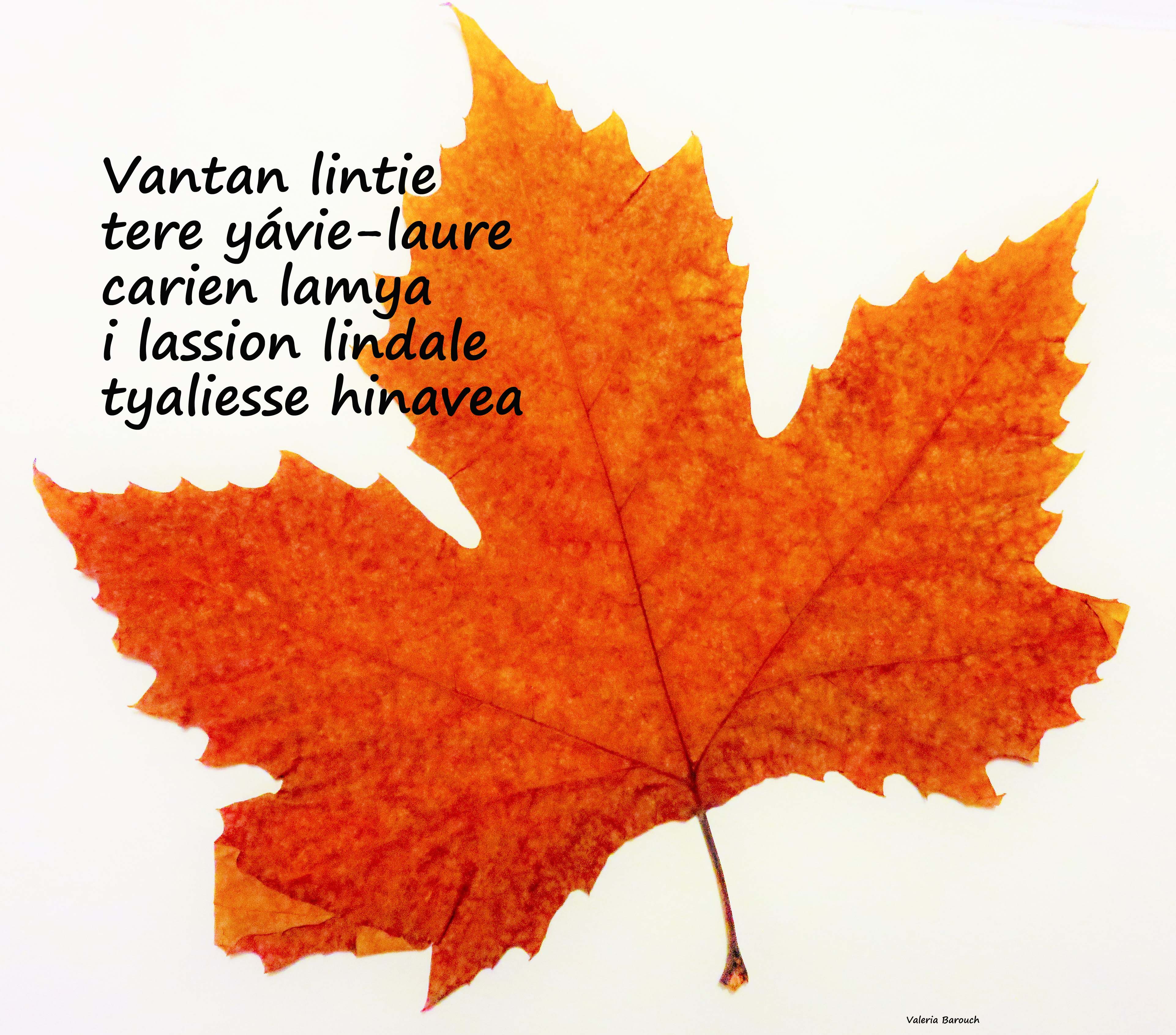 |
I
walk with speed
through autumn-gold
to make sound
the leaves' music
in childlike play |
|

|
I observe a long time
beyond the city's roofs
the lake's radiance
when has lessened
my love for this place
|
|
Húmence
lómi -
cé ahyaner marillannar
lá netyanelte
aurenya alassenen
an cólo míre taite
|
Sleepless nights -
if they changed to pearls
they would not adorn
my day with joy
a burden more such a jewel *
February 2014 (This Tanka
has been the object of an interesting introduction by Tony Böhle, owner
of "Einunddreissig") |
|
*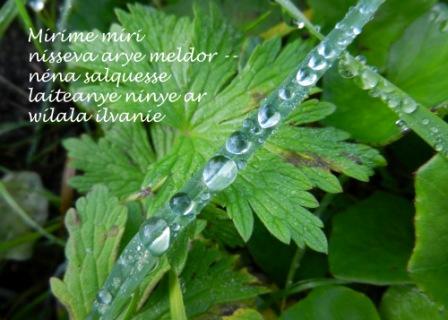 |
Valuable jewels
a woman's best friends --
in the wet grass
I praise mine and
fleeting perfection *
November
2013
|
Tintal'armanen
ve olwennen istarwa
picina asto -
síra ece nin save
nalme elenermava
|
Sparkling by a ray of
sunlight
like by a wizard's wand
a little dust -
today I may believe
we are of star-matter *
August 2013
|
Vantean rosses
felyean antanyassë
limbaron miqui,
sírala indonyanna
ve lótë faucanna
|
Walking in the rain
I'm feeling on my face
the drops' kisses,
flowing to my mood
like to a thirsty flower *
Mai 2013
|
I
nordor tárar
et lumbotelumello
ve tulce sundar
nute menel cemenna
hloita indo lumbenen
|
The oaks are standing
out of the cloud-canopy
like immovable roots
to tie heaven to earth
to poison mood with gloom *
Mai 2013
|
Tuimar,
à cena
quélala lassi nu nén
nelleo tinda,
nécé ausar aurion
i váner - i tuluvar
|
Buds, behold -
the withering leaves under water
of the sparkling brook,
pale phantoms of days
those that went - those to come *
Bourgeons, contemplez
les feuilles flétrissant sous l'eau
du ruisseau miroitant,
phantoms pâles de jours
passés - à venir
Mai 2013
|
Tuileo
lindi -
ter i aure lamyea
aiweo "kwi kwi"
sámanyas nallamyeas
"é, mana qui, mana qui..."
*This
tanka makes only sense in Quenya or in any language in which a sound
that resembles "kwi" means "if". Ce
tanka ne garde son sens évidemment que dans une langue qui possède un
mot pour "si" qui sonne comme "kwi". |
Spring tunes -
through the day sounds
*a bird's "kwi kwi"
in my mind it sounds back
"indeed, what is if, what is if...."
Chant de printemps -
toute la journée résonne
* le "kwi kwi" d'un oiseau
dans ma tête sonne l'écho
en effet, qu'est-ce-qui se passe si....
|
Erinqua
tanwa
mi
ninquisse ú pelo
néca
pampile
i
métima lasseo
nixeraina
olwasse
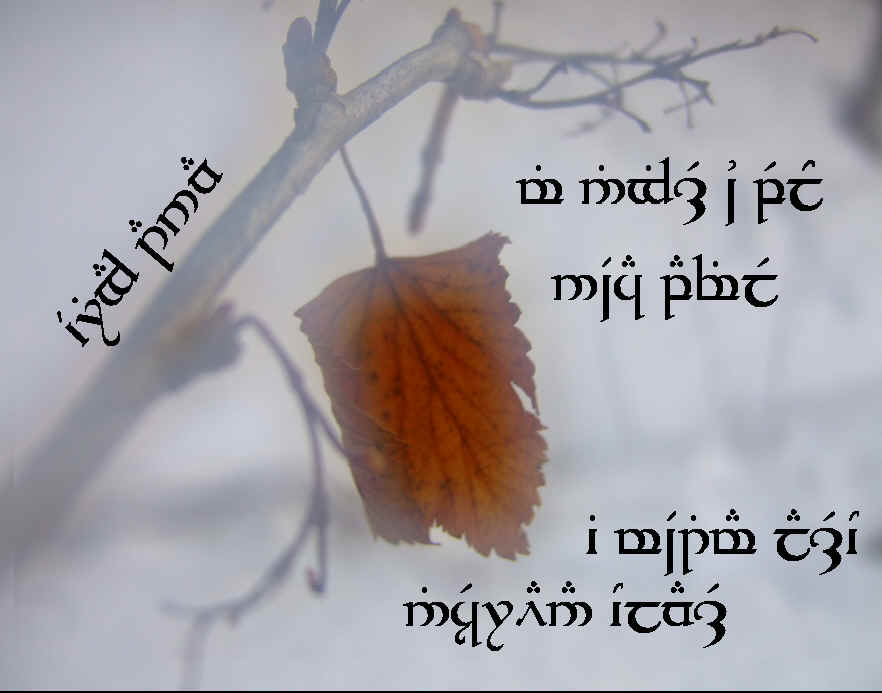
tanwa:
PE17:186,206 has tanna and ?tanwa, I prefer tanwa to avoid confusion
with tanna "tither"
pelo : PE17:65,90,204 border, ú pelo "without border"
nixeraina : nixe "frost", raina "nettled,
enlaced" VT42:11 (C.E. base RAY- VT42:12). However, _raina_ is also
an adj. "smiling, gracious" in PE17:182, stem RAYA-
pampile: trembling, verbal noun, QL:72 (PAPA) |
The
only sign
in
the borderless whiteness
a
faint trembling
of
the last leaf
on
a frost-enlaced branch
L'unique signe
dans la blancheur sans limite
le faible tremblement
d'une dernière feuille
sur une branche enlacée de givre
|
Aiqua ambanna
lumbë talunyat hilyar
helinyetilli
hellevie mittali
nu nienaiti lumbor
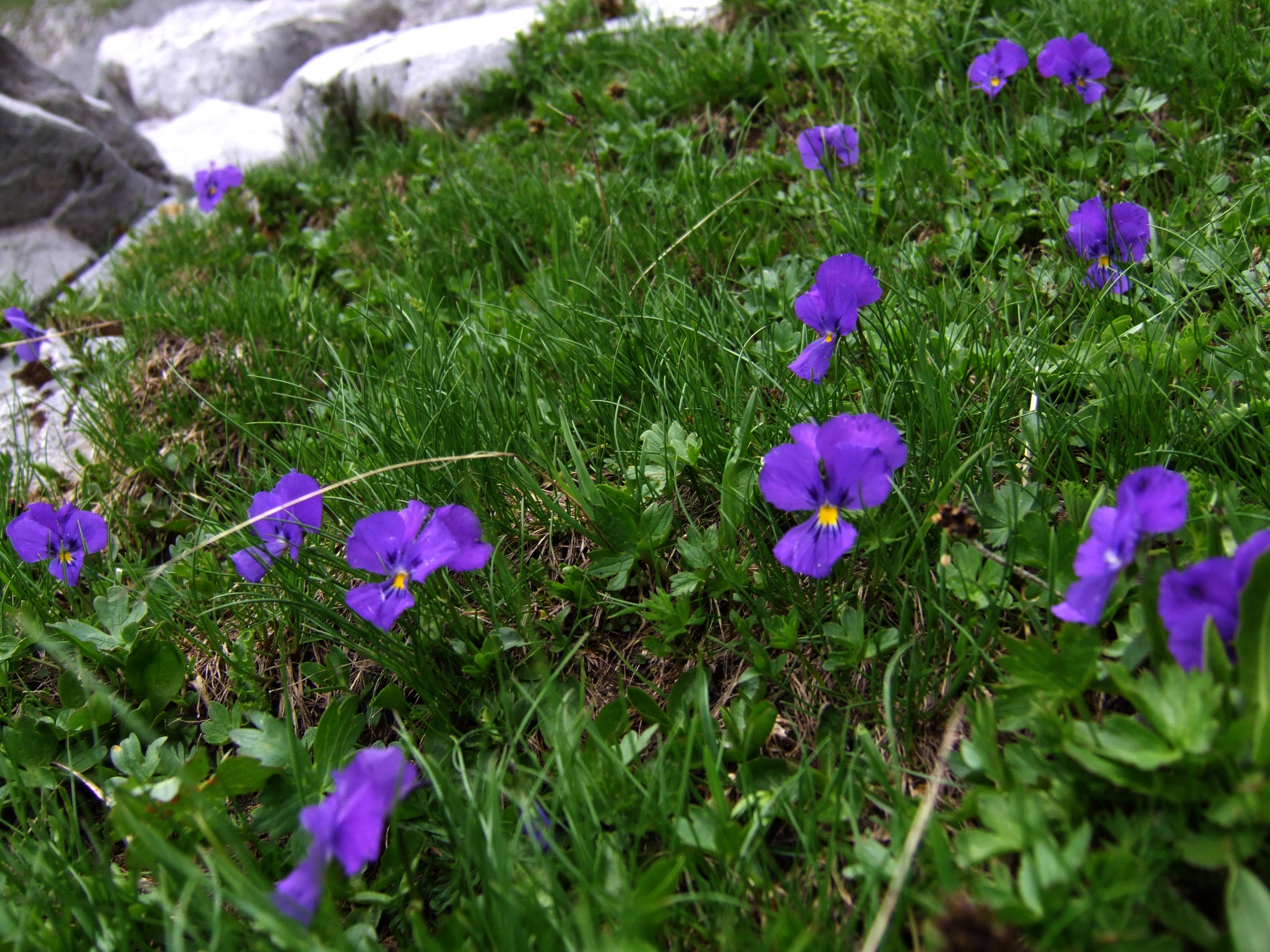
|
Upon the steep slope
my weary feet follow
the Heartseases,
skylike pieces
under tearful clouds
Sur la pente raide
mes pieds fatigués suivent
les violette
comme des bouts de ciel
sous de nuages larmoyants
|
In
orocelmar
nar coirëa quentasta
yárë curwion -
pelehtainë minn'ondor
verië ar yórenen
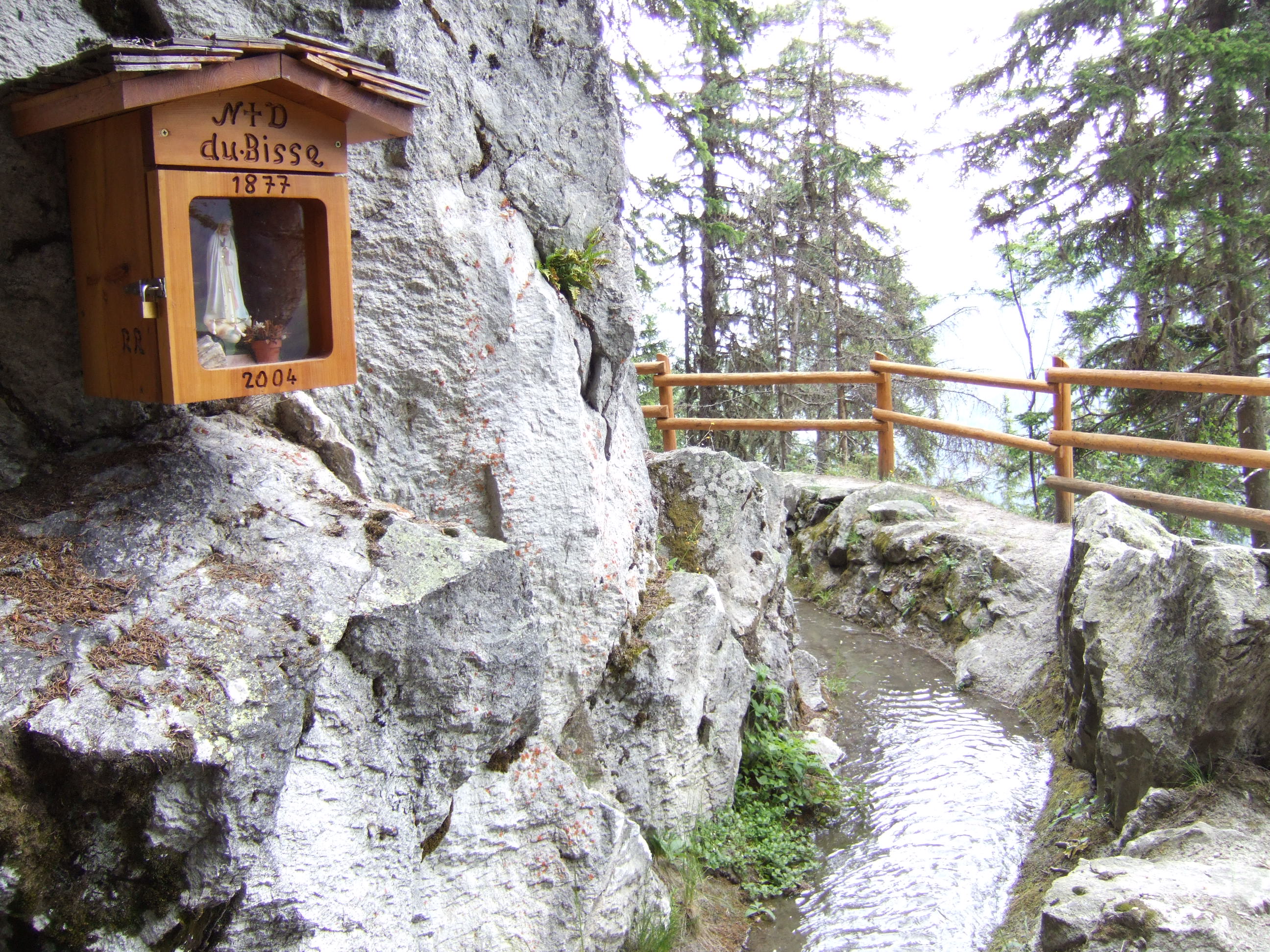
|
The mountain channels
are living History
of ancient skills -
hewn into rocks
with boldness and blood
Les canaux de montagne
sont de l'histoire vivante
d'un savoir-faire ancien -
taillé dans le roc
avec audace et sang
|
Mi
lauca víle
Vile
i silma fine
Enwina
nisso -
Vinya
liante lelya
Yáviév'arinesse
|
In
the warm breeze
Flies
the silver shining hair
Of
an old woman -
A
young spider travels
On
a autumn morning!
|
Lasselanta
en
mal hríve úva véna
hlarin hlusseya
yá lóri aunorir as
norolinde *nyarrinci
*nyarrince means of course "little
rat", _nyarro_ NYAD- from the Etymologies with the diminutive
suffixe _-ince_. There is no Quenya word for "mouse". The
meaning of the stem is "gnaw".
The Gnomish Lexicon
(PE11:60) has the words _nig_ and _nigla_ for mouse that come from the
word to thieve, pilfer _nigla-_.
In Qenya, steal is _naqa-_.
|
Autumn
still
but winter is drawing near to us
I hear his whisper
when dreams run away with
lightly tripping mice
|





